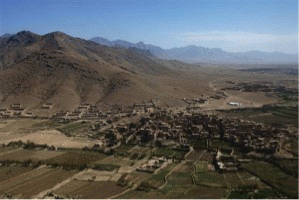Many different interests vie for supremacy in Afghanistan, and the new administration must stimulate an honest discussion among the stakeholders. Left out of discussions so far has been consultation with the Afghan people themselves.
I recently taught a class at New York University's Center for Global Affairs, where students were assigned various roles simulating democracy-building efforts, The exercise highlighted issues such as civilian casualties, negotiations with the Taliban, refugees whose families have been killed, and the limited cooperation of international organizations and agencies. The students diligently outlined their goals and interests, and determined whom they should (or should not) be working with.
There were a number of striking similarities between the simulation's outcome and the current reality.Â
- The smallest groups, NGOs and refugees, spoke to everyone and anyone to increase their chances of getting the job done, but larger groups-the military and USAID-dismissed their value. The larger groups worked only with groups that would support their agendas, without considering the larger strategic picture. Other than refugees (who were directed to do so in the simulation), no party spoke with the Afghan government, except for the U.S. military, but they met with "Karzai" just 10 minutes before the simulation ended. And that visit was merely to "inform" the Afghans about their plans.
-
Lack of a holistic, strategic and visionary U.S. foreign policy is hardly news, and neither is competition between organizations and agencies. What is shocking is that most Afghan nationals are repeatedly excluded from the planning, decision-making and implementation processes. Although they are sometimes "informed," their input is often dismissed while outside plans are imposed.
My class learned this in a safe environment. Regrettably, the U.S. military has learned the same lesson in a very dangerous one-Iraq. Many recent successes in Iraq have occurred because our soldiers are finally learning to work with community leaders to win hearts and minds. The new emphasis-on working collectively-is being transferred to Afghanistan, and Barack Obama has pledged to support this strategy.
Afghans watched the U.S. election closely. While I was in Kabul this summer, every one of my colleagues expressed support for an Obama administration, and I received many congratulatory emails afterward.
Afghans believe that Obama will concentrate on the welfare of civilians, and minimize the use of force. They believe he will use civilian foreign policy "tools" that more effectively empower Afghans, so they can convince their own communities to keep the Taliban at bay and repair their shattered society.
Afghans know they need help. They understand that they live in a broken nation, one ranked 173 out of 178 in the area of human development. They know that the poppies cultivated in the south do not give them power, but help to maintain warlord domination and aggression. The people know, but they feel powerless to make the changes without more help-and a much bigger say.
As president, Obama will have an unprecedented chance to make big differences in our world, including Afghanistan.
To do this, however, he must first realize that the U.S. foreign policy apparatus needs an overhaul. If the parts are not coordinated to create an effective whole, the United States will never get out of Iraq, let alone help Afghanistan to move forward.
Obama must also require the military to create a comprehensive strategy for success. This requires that NATO and the international community accept more leadership responsibilities.
Finally, without strengthening Afghan participation and requiring accountability from all parties, little will change in the country or the region. We will not only fail at a more rapid rate, we will find ourselves on the outside, looking in. Afghans will tell you that they won't tolerate much more domineering behavior.
Obama will be tasked with determining how Afghanistan fits into a new and, one hopes, visionary American foreign policy. He must also set the direction for the U.S. military in Afghanistan, while promoting change in an international community that has been as much a part of the problem as the solution.
The current head of U.S. forces in Afghanistan, General David McKiernan, said it will take more than extra soldiers to stabilize Afghanistan. It will take Afghans, as well as a more holistic foreign policy. This policy must be more inclusive, taking into account the interests of all parties in the region.
The "cowboy" mentality practiced under the outgoing administration has not gotten us anywhere. Change is overdue. This requires equal and honest participation from all stakeholders in creating a stable country that can finally move beyond war.
(Note: You can view every article as one long page if you sign up as an Advocate Member, or higher).




